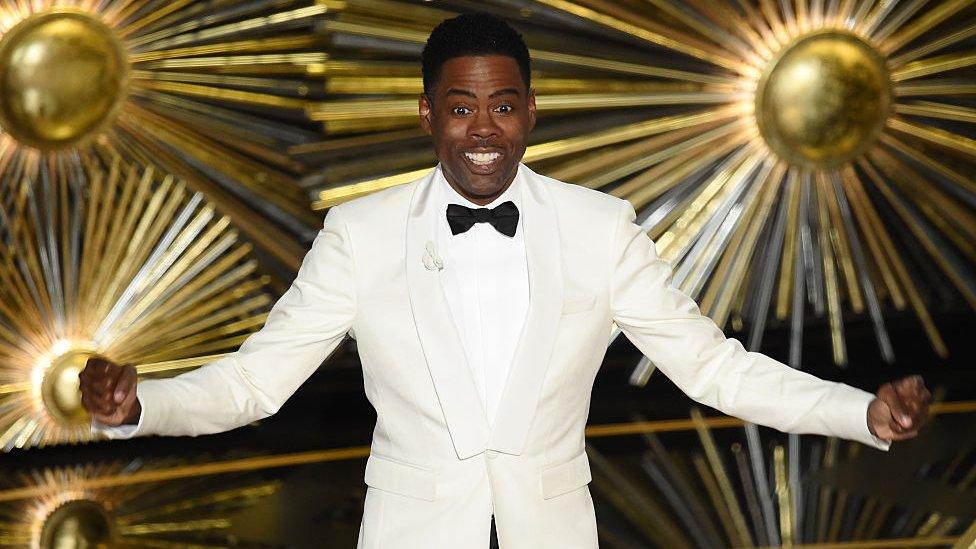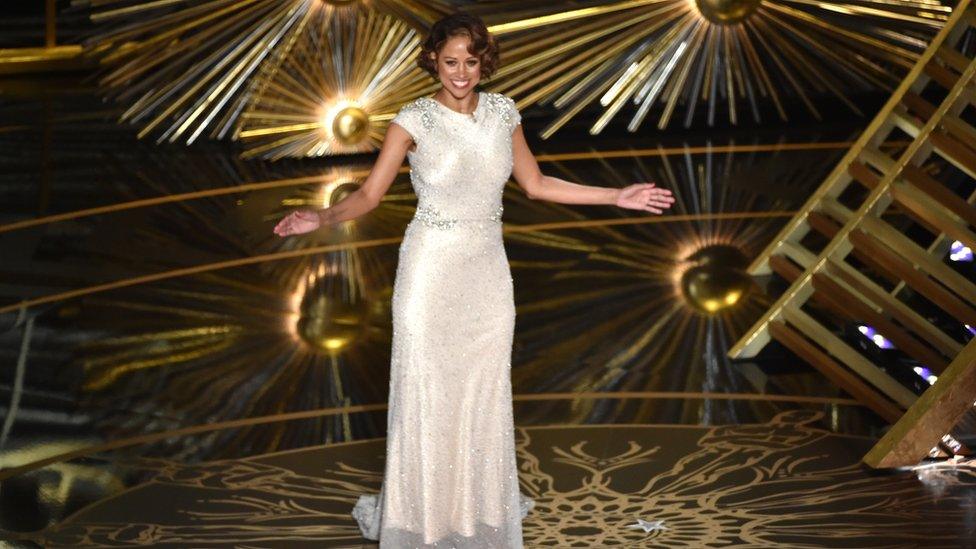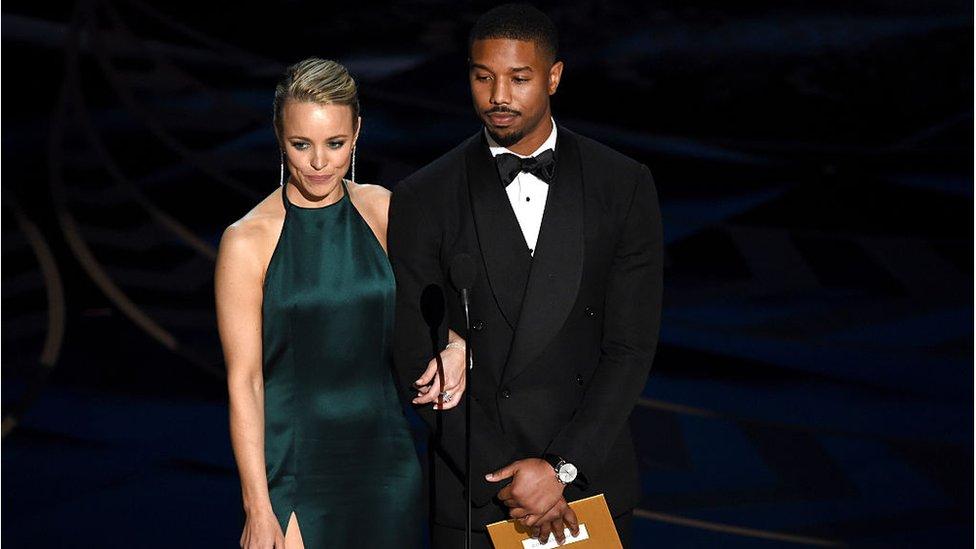Oscars 2016: How did Chris Rock do?
- Published

Hosting the Oscars is always a high-pressure job. For Chris Rock, who emceed the 2016 ceremony, there was more at stake than whether his jokes would land.
Rock, one of the most famous black comedians in the world, was hosting during a year when race - specifically, the lack of diverse talent nominated for awards - was at the forefront.
For the second year in a row, no black actors or actresses received nominations.
Films showcasing black actors, directors and screenwriters were largely ignored - despite what many critics saw as award-worthy efforts in films like Beasts of No Nation, Straight Outta Compton and Creed.
The January nominations spurred a viral hashtag - #OscarsSoWhite - in which activists and moviegoers took to social media to bemoan the lack of diversity. Viewers were eager to see how Rock would address the controversy.
He could not be accused of side-stepping it. He opened his monologue by talking about race, and then returned to the theme throughout the night.
"Well, nobody can accuse Chris Rock of avoiding the elephant in the room," wrote The Washington Post's Aaron Blake, external.
But was it funny?
His early jokes received a mixed response from those watching at home, and some uncomfortable laughter from the show's live audience, especially as he seemed to imply a lack of representation at awards shows was not a serious issue.
"Why now?" he asked, noting that for 71 of the 88 years in which an Oscar ceremony was held, there were no black nominees.
"Say '62 or '63... black people did not protest," he said. "We had real things to protest; you know, we're too busy being raped and lynched to care about who won best cinematographer."

Stacey Dash
Some felt these critiques were too dismissive - in fact, people did protest over the lack of diversity at the 1962 and 1963 Oscars, external - while others were impressed that the grassroots activity around #OscarsSoWhite managed to so strongly influence the show.
"Why would you expect Chris Rock to show up and suddenly be Angela Davis?" asked the sociologist Tressie McMillan Cottom, external on Twitter. "You changed an entire disclosure. [Why] does it matter if Chris got jokes? You. Won."
Indeed, some said such jokes were to be expected. "Worth remembering that there's always been strains of conservatism in Rock's comedy," wrote NPR's Gene Denby, external.
As the monologue went on, the jokes continued, leaving some to wonder if Rock's humour was going to be one-note. "Is it possible that @chrisrock will be make EVERY joke refer to #OscarsSoWhite in some way?" wrote NY1's Pat Kiernan, external.
Others said that such a routine could be instructive. "If you're feeling awkward and possibly left out of some of these jokes, THAT'S THE POINT," wrote The New York Times' Dave Izkoff, external.
The one bit everyone seemed to agree fell flat involved Clueless actress Stacey Dash. Dash, who is black, had spoken publicly against the protests, and suggested that people should instead boycott shows like the NAACP Awards and BET Awards, which showcase actors of colour.
Rock brought her on stage briefly, naming her the director of the Oscar's minority outreach programme.
Some people just didn't get it, external. But those who did weren't laughing. "Who thought that was a good idea?" wrote CNN's Brian Stelter, external
Rock received high grades for addressing the controversy while still keeping the tone light - though some people though he focused too much on black actors and not other underrepresented groups.

Rock introduced nominee Rachel McAdams and 'should've been nominee' Michael B Jordan
"Why did Chris Rock keep referencing black ppl as if #OscarsSoWhite wasn't about the lack of [people of colour] representation, not just black folks?" asked the Nightly Show's Franchesca Ramsey, external
But by the end of the night, he had won most viewers over. "There were some awkward missteps but Chris Rock never let viewers forget the issue of diversity," tweeted the educational group Feminist Frequency, external, who noted that Rock signed off from the telecast by saying "Black Lives Matter".